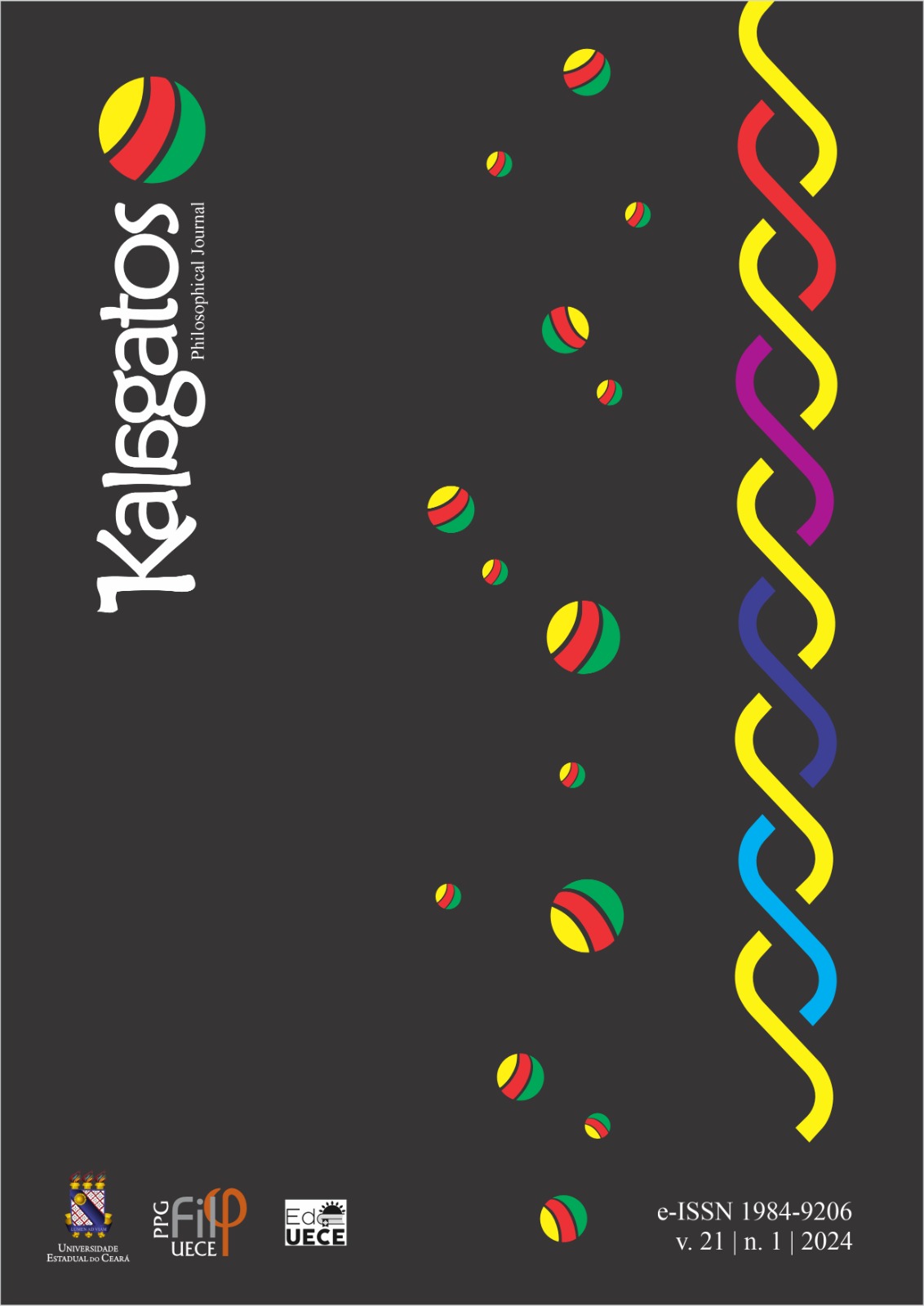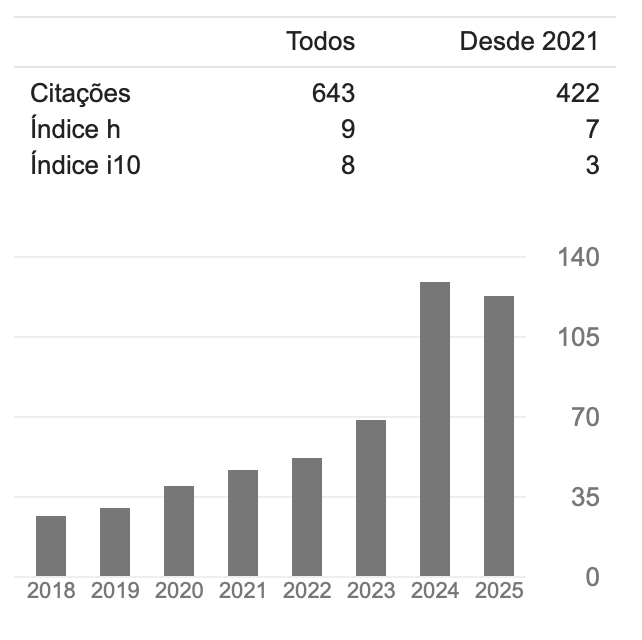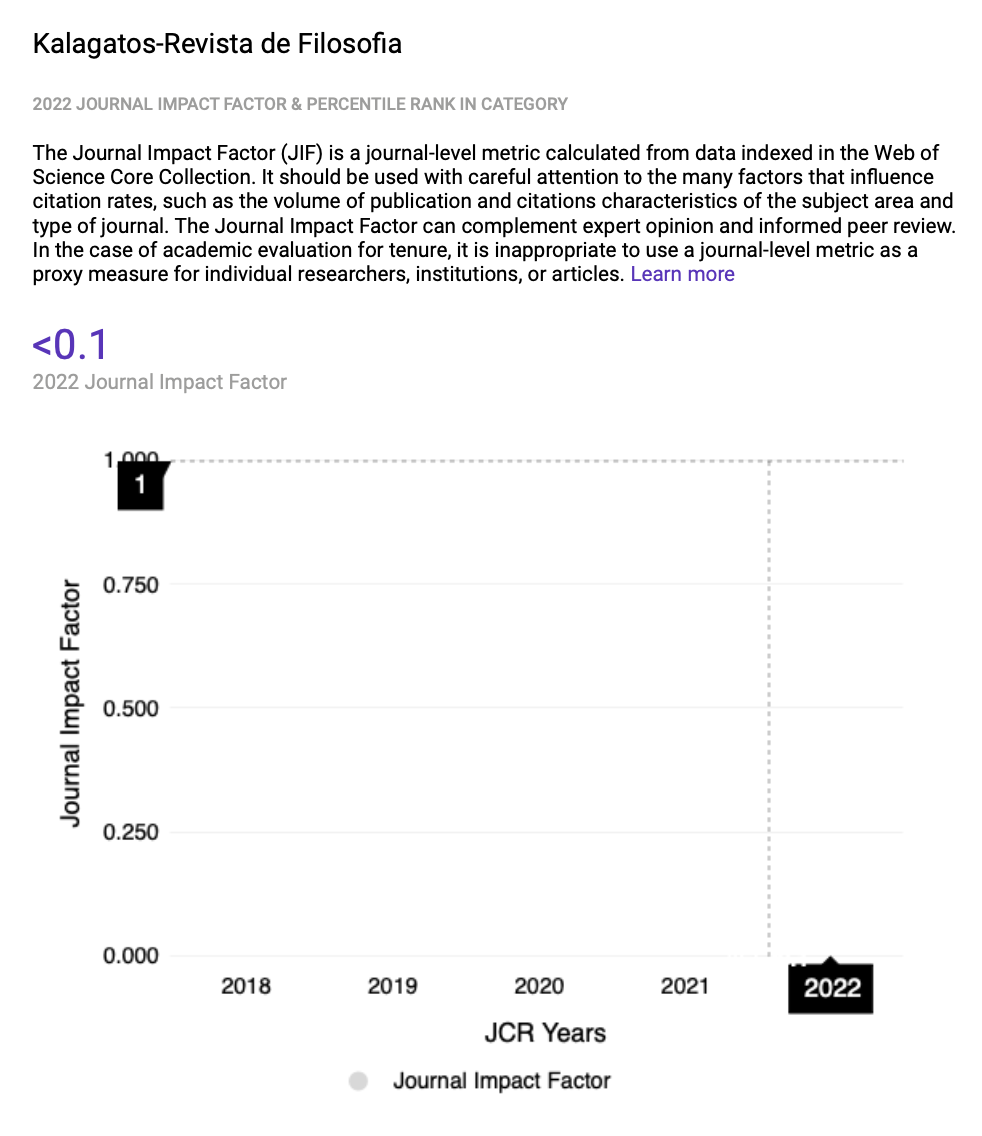Aristotle's Moral Philosophy: An Experience for Human Flourishing in the Modern Context
Palavras-chave:
Aristotle, moral philosophy, eudaimonia, virtue, middle wayResumo
Aristotle's moral philosophy provides a timeless theoretical framework for understanding human development through the lens of eudaimonia, virtue, and practical reason. This study explores the core elements of his moral thought, emphasizing the pursuit of happiness as the ultimate human goal, achieved through a virtuous life guided by reason. By analyzing key concepts such as the middle way, the role of habit in personality development, and the relationship between individual and community well-being, this study highlights the depth and flexibility of Aristotelian ethics. The analysis does not stop at explaining history but also assesses the relevance of this philosophy to solving modern ethical problems, including consumerism, dependence on technology, and social inequality. The results show that Aristotle's emphasis on balance, self-discipline, and rational reflection provides a powerful guide to confronting contemporary moral challenges, promoting a meaningful and fulfilling life. The article emphasizes the enduring value of Aristotle's philosophy in shaping moral discourse and personal development in today's complex world and Vietnam.
Downloads
Referências
Adolfo, R. (2023). O rigor do discurso poético segundo Aristóteles. Polymatheia - Revista De Filosofia, 16(2), 9–34. Recuperado de https://revistas.uece.br/index.php/revistapolymatheia/article/view/10564
Akgün, R. C. (2023). The necessity and chance in Aristotle’s theory of society and ethics. Karamanoğlu Mehmetbey Üniversitesi Edebiyat Fakültesi Dergisi, 6(2), 215-225.
Annas, J. (1993). The morality of happiness. Oxford University Press.
Bui, X. D. (2025). Karl Marx's Theory of Productive Forces and their significance for human development in contemporary Vietnam. Aufklärung: revista de filosofia, 12(1), 107-118.
Freitas, J.A. Dr . (2021). SOBRE O SER E SEUS MÚLTIPLOS SIGNIFICADOS NA METAFÍSICA DE ARISTÓTELES . Polymatheia - Revista De Filosofia, 11(18). Recuperado de https://revistas.uece.br/index.php/revistapolymatheia/article/view/5824
Gherasim, I. A. (2017). The becoming of the society: Perspectives from Aristotle and JJ Rousseau. In The Holistic Society: Multi–Disciplinary Perspectives. Proceedings of Harvard Square Symposium (pp. 333-341). Scientia Moralitas Research Institute.
Greene, J. (2003). From neural 'is' to moral 'ought': What are the moral implications of neuroscientific moral psychology? Nature Reviews Neuroscience, 4(10), 846-850.
Griswold Jr, C. L. (2008). Happiness, tranquillity, and philosophy. Critical Review, 10(1), 1-32.
Haybron, D. M. (2008). The pursuit of unhappiness: The elusive psychology of well-being. Oxford University Press.
Kien, P. T. (2025). Marxist philosophy and its influence on today's world. Kalágatos, 22(1), ek25008-ek25008.
Knippenberg, L., De Groot, W. T., Van Den Born, R. J., Knights, P., & Muraca, B. (2018). Relational value, partnership, eudaimonia: A review. Current Opinion in Environmental Sustainability, 35, 39-45.
Maricchiolo, F., Mosca, O., Lauriola, M., & Krys, K. (2021). From ME to WE: A literature review on happiness and well-being focused on relational factors and social interconnectedness. Psicologia Sociale, 16(1), 3-25.
Mechico , R. A. ., & Tomo, A. X. . (2021). Desenvolvimento como processo de busca de Bem-Estar (Sen) e de Felicidade (Aristóteles). Revista Cacto - Ciência, Arte, Comunicação Em Transdisciplinaridade Online, 1(2), 45–60. https://doi.org/10.31416/cacto.v1i2.286
Mulgan, R. (1999). The role of friendship in Aristotle’s political theory. Critical Review of International Social and Political Philosophy, 2(4), 15-32.
Nussbaum, M. C. (1986). The fragility of goodness: Luck and ethics in Greek tragedy and philosophy. Cambridge University Press.
Reeve, C. D. C. (2011). Practices of reason: Aristotle’s Nicomachean Ethics. Oxford University Press.
Santos Tabosa, Adriana. (2021). “A IGUALDADE E A COMENSURABILIDADE NAS TROCAS EM ARISTÓTELES”. Polymatheia - Revista De Filosofia 3 (4). https://revistas.uece.br/index.php/revistapolymatheia/article/view/6530
Silva, R. B. B.. (2022). A abrangência do lógos entre Aristóteles e Gadamer. Polymatheia - Revista De Filosofia, 14(25). Recuperado de https://revistas.uece.br/index.php/revistapolymatheia/article/view/6656
Silva Barreto, C. ., da Silva, J. W. ., & Vita Baraúna, T. . (2022). Sobre a divisão da alma em Aristóteles. Polymatheia - Revista De Filosofia, 15(2), 41–63. Recuperado de https://revistas.uece.br/index.php/revistapolymatheia/article/view/6669
Skrbina, D. (Ed.). (2009). Mind that abides: Panpsychism in the new millennium (pp. 1–29). John Benjamins Publishing Company.
Sueur, C., Lombard, J., Capra, O., Beltzung, B., & Pelé, M. (2024). Exploration of the creative processes in animals, robots, and AI: Who holds the authorship? Humanities and Social Sciences Communications, 11(1), 1-12.
Downloads
Publicado
Como Citar
Edição
Seção
Licença
Copyright (c) 2025 Gabriel Kafure da Rocha

Este trabalho está licenciado sob uma licença Creative Commons Attribution 4.0 International License.



















